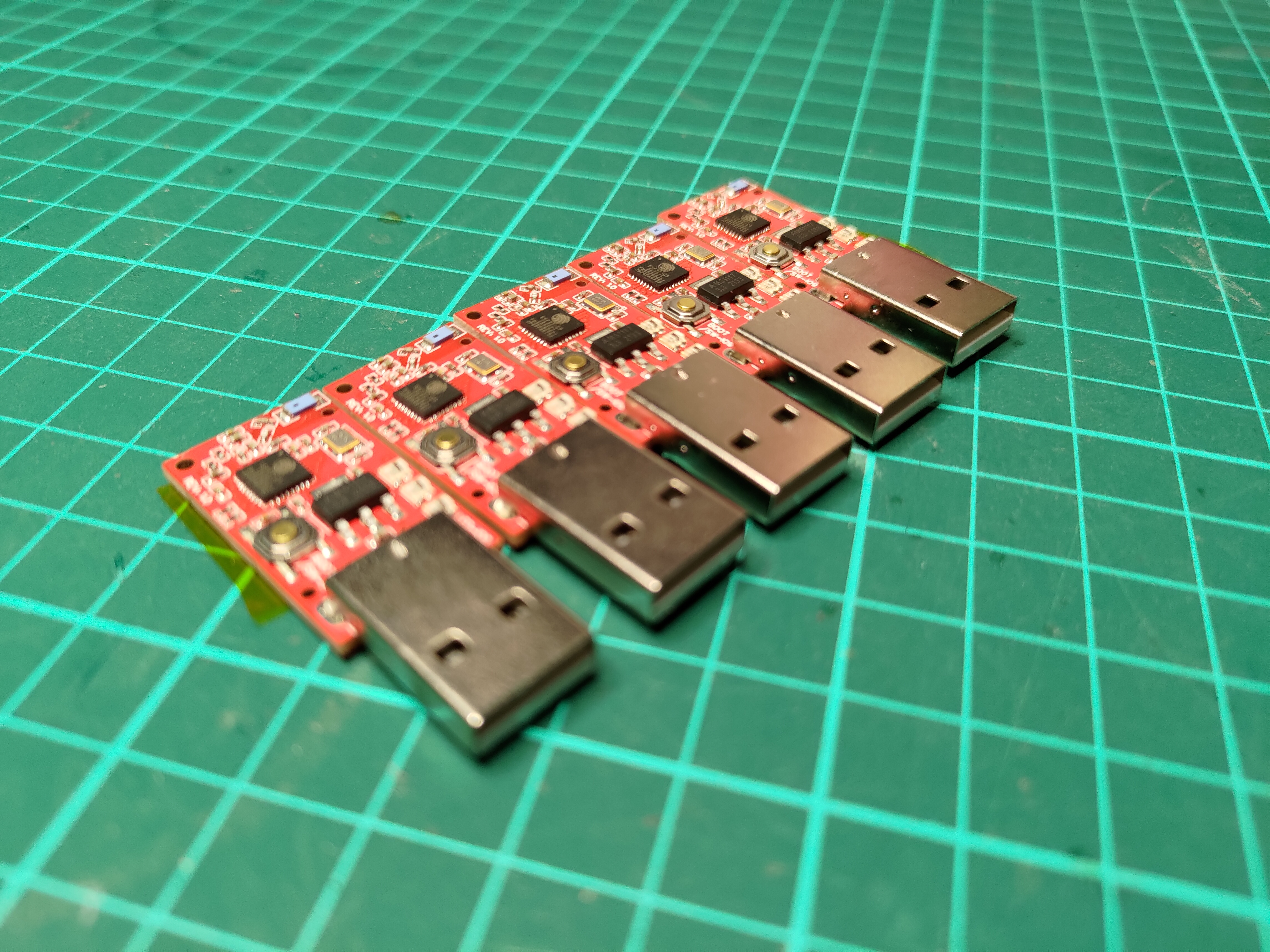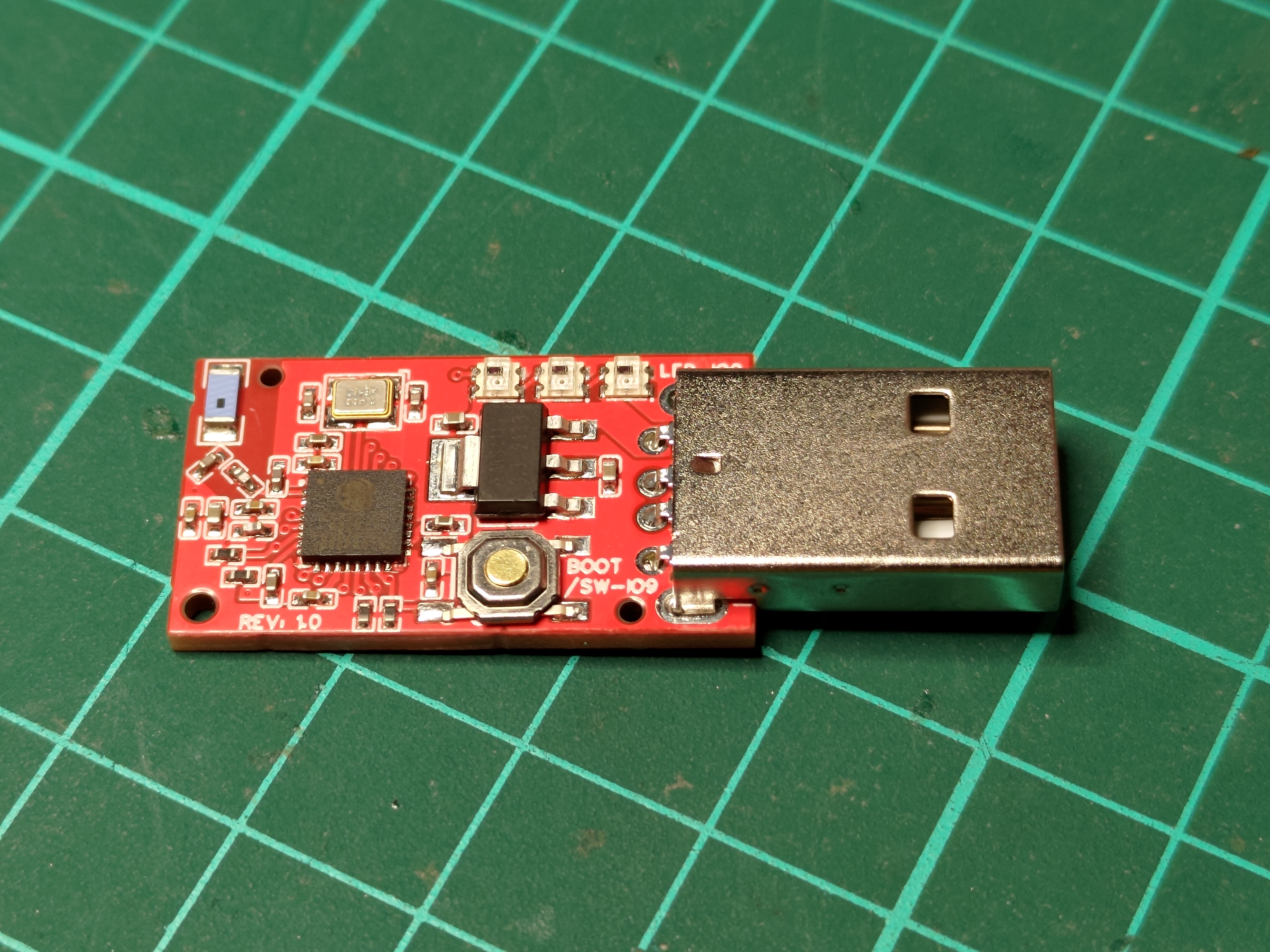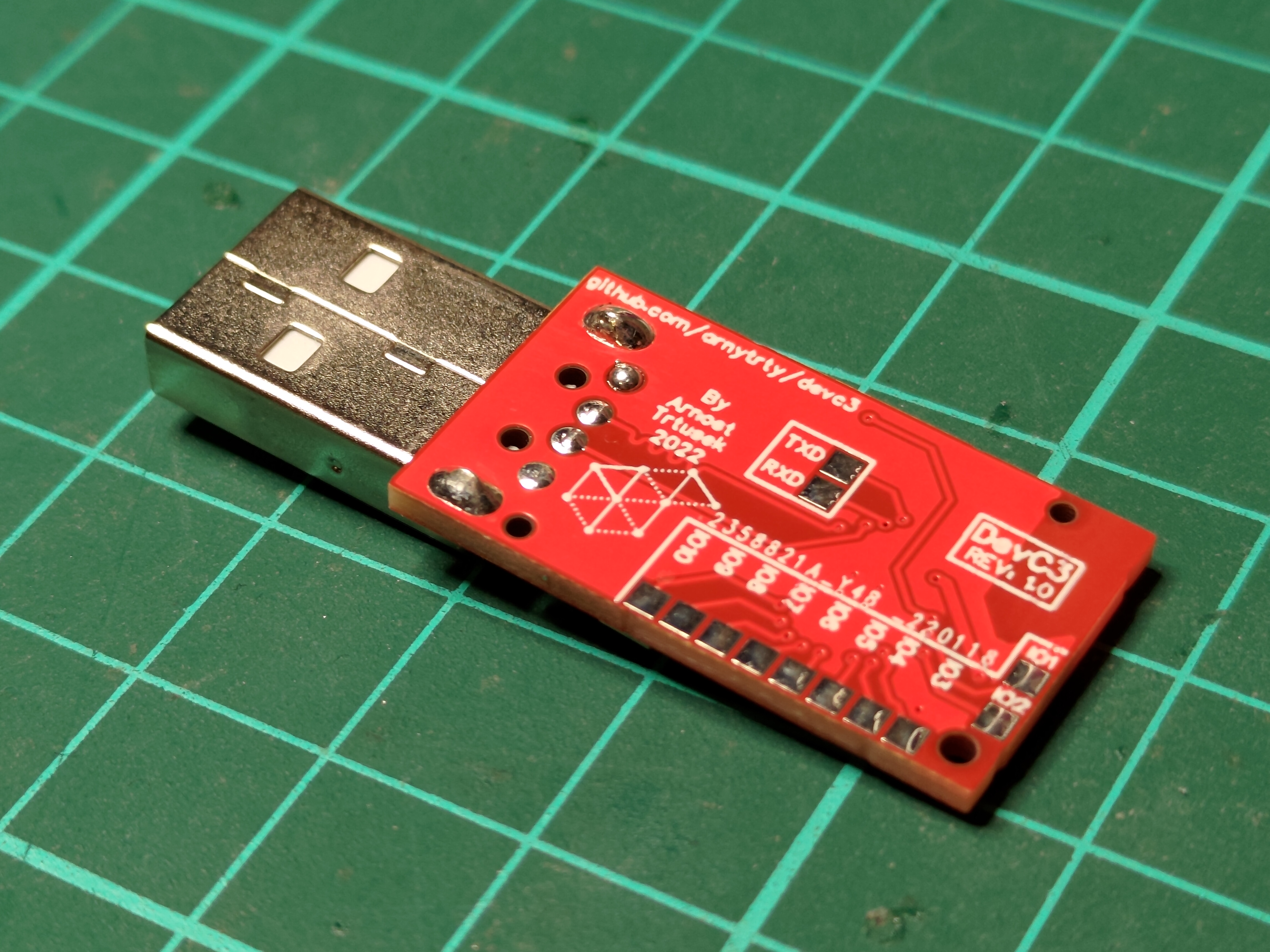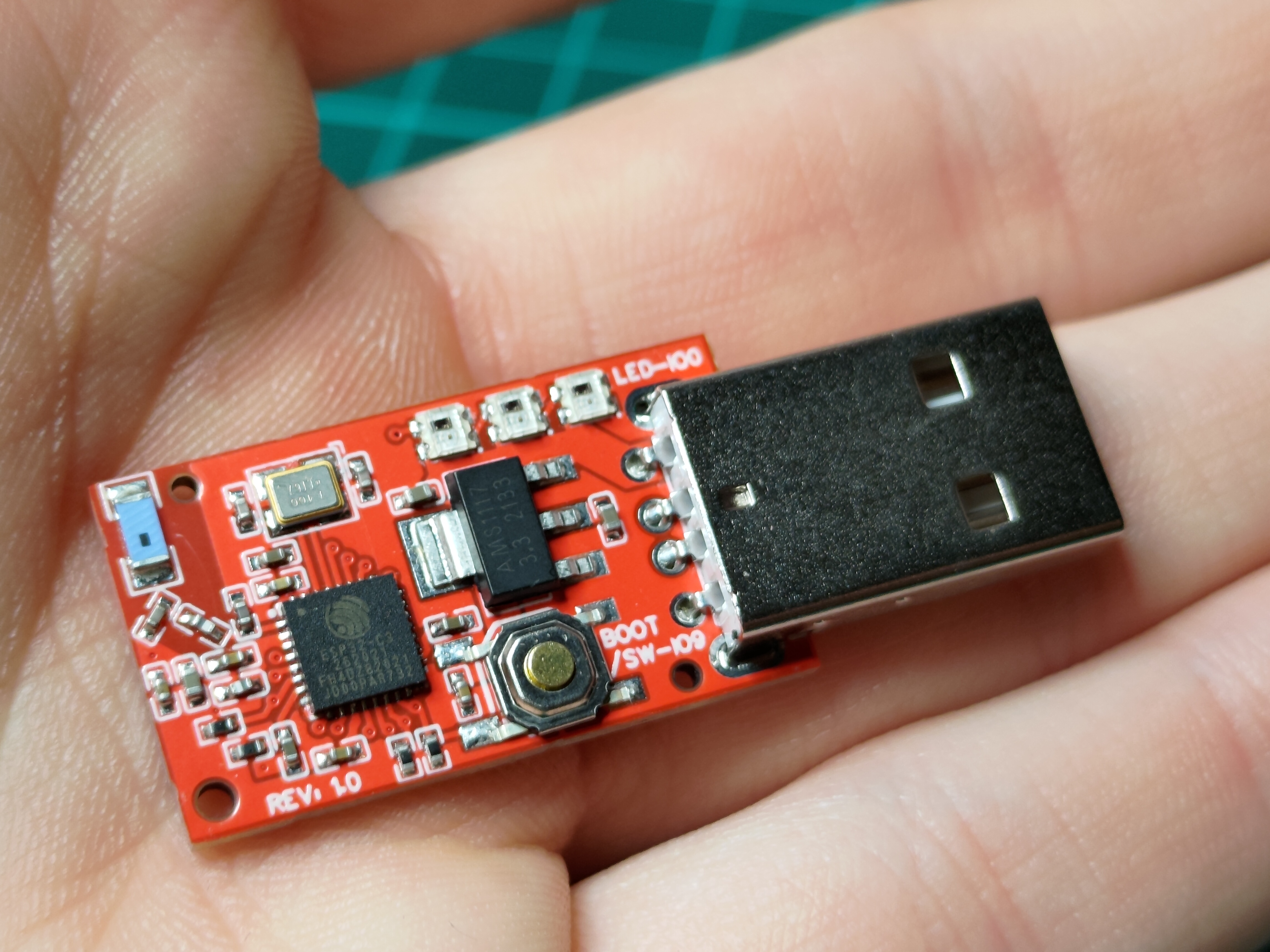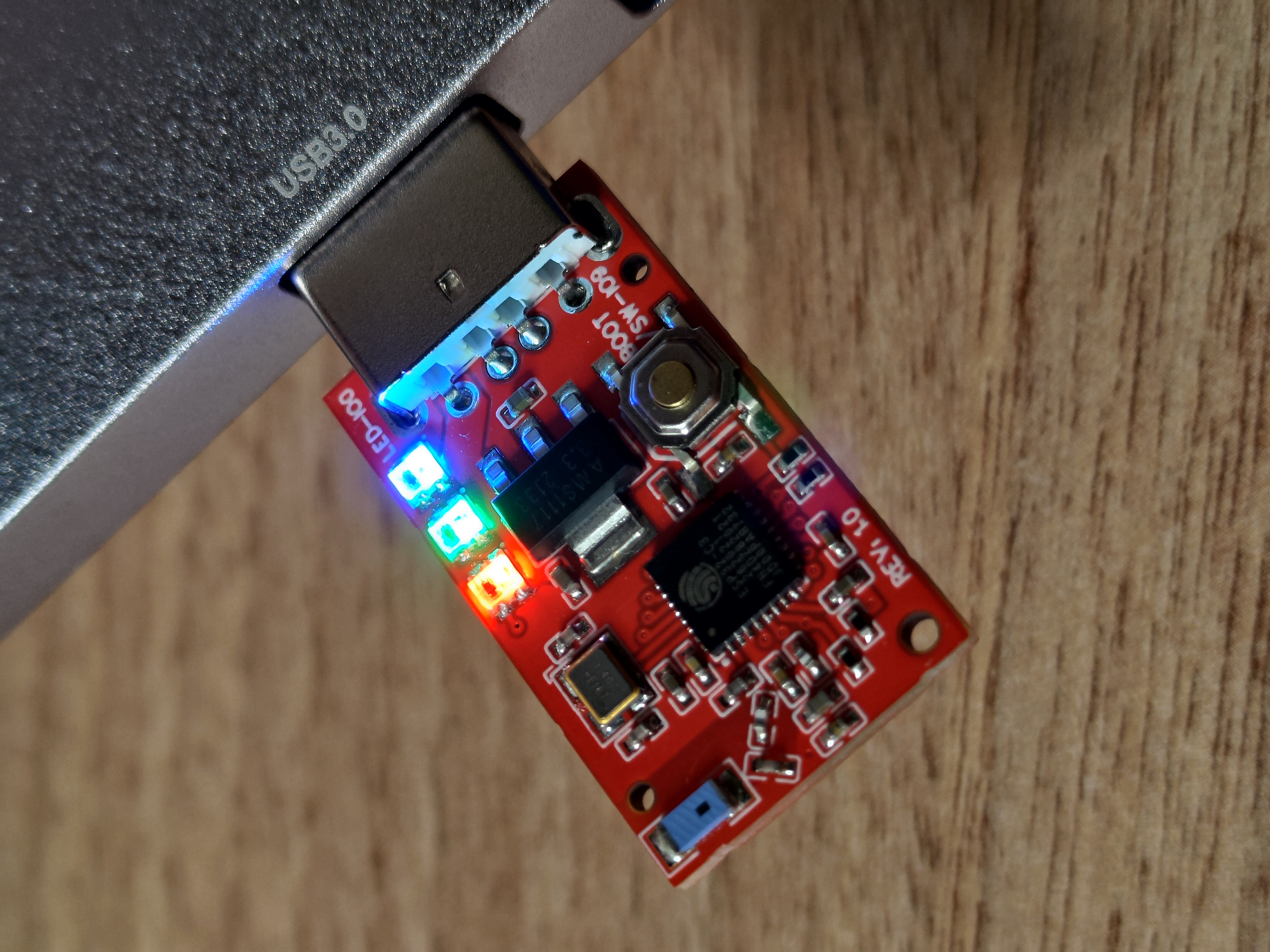CAPACTOR C12 IS IN WRONG POSITION AND BRINGS PARASITE CAPACITANCE TO THE PI-MATCH THUS WIFI IS NOT WORKING, ALSO SOFTWARE RESET IS UNSTABLE FOR SOME REASON
please do not use this board, it was only designed as an experiment - this repository will not be maintained actively anymore
DevC3 is small, open source board (shaped as dongle) based on ESP32-C3 with MicroPython support. Its designed in EasyEDA and its fully assemblable in JLCPCB assembly. You can find it on the OSHWLab, or in this repository.
For now, there is not any direct port of MicroPython, but GENERIC_C3_USB works perfectly! The installation process is basically:
- Download latest firmware binary from MicroPython website
- With Python & Pip installed, inistall esptool.py with
pip install esptool - Plug board to computer with button held down (device should show as USB JTAG/serial debug unit)
- Install MicroPython with:
- clear flash:
python -m esptool --chip esp32-c3 --port /dev/ttyUSB0 erase_flash - flash firmware:
python -m esptool --chip esp32c3 --port /dev/ttyUSB0 --baud 460800 write_flash -z 0x0 esp32c3.bin
- clear flash:
- Reboot the board simply by taking it out and plugging it back
Replace /dev/ttyUSB0 with your device, on Windows use COM, for example COM5, COM12, ... (can be found in device manager under Ports). This guide can be also found on the port page.
You can use all libraries available in MicroPython (for example Pin library). There is only one problem with the NeoPixels library.
As stated in esp32-c3 port used wront rmt channel, you need to use esp32.RMT.bitstream_channel(0) before using NeoPixel. For Example:
from machine import Pin
from neopixel import NeoPixel
from esp32 import RMT
# correct the channel error
RMT.bitstream_channel(0)
pin = Pin(0, Pin.OUT)
np = NeoPixel(pin, 3)
np[0] = (32, 0, 0)
np[1] = (0, 32, 0)
np[2] = (0, 0, 32)
np.write()All Peripherals:
- WS2812 = IO0
- Button = IO9
- IO1-IO10 = On the bottom side of the board
- RX-TX = On the bottom side of the board
GPIO2, GPIO8 and GPIO9 have on board 10KOhm pullups
